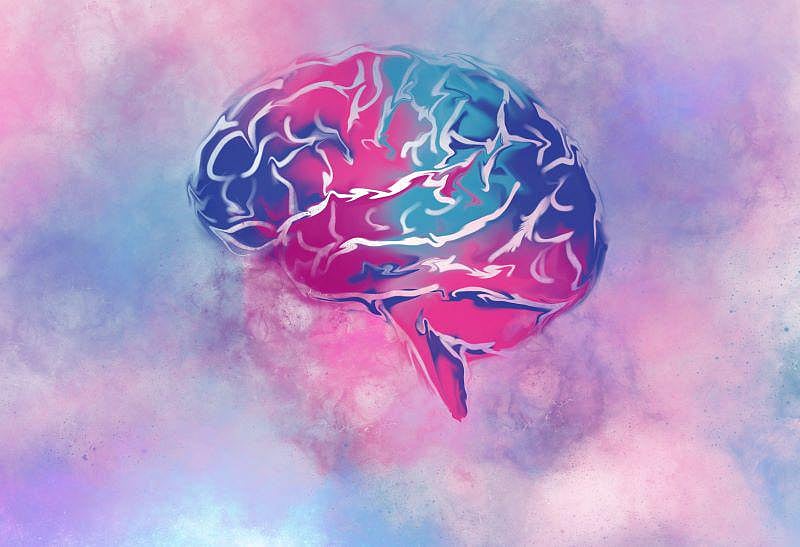Manténgase sano!

- Amy Norton
- Posted September 14, 2023
MDMA/Ecstasy Shows Even More Promise in Easing PTSD
A new study is adding to evidence that the party drug "ecstasy" can boost the benefits of talk therapy for people suffering from post-traumatic stress disorder (PTSD).
In a clinical trial, researchers found that three months of talk therapy, assisted by carefully monitored doses of ecstasy (MDMA), worked significantly better than therapy alone.
Of 52 patients who completed MDMA-assisted therapy, about 87% were considered responders. That meant they had meaningful reductions in the recurring nightmares, flashbacks, crippling anxiety and other symptoms that plague people with PTSD.
In fact, 71% no longer qualified for a PTSD diagnosis by the study's end. That compared with a rate of 48% among the 42 patients given talk therapy plus a placebo.
Experts said the findings, published Sept. 14 in the journal Nature Medicine, offer more evidence that MDMA-assisted therapy is a "real" treatment for PTSD.
"It's not a panacea," cautioned lead researcher Jennifer Mitchell, a professor of neurology at the University of California, San Francisco.
For one, not everyone responds to the approach. And a big unanswered question, Mitchell said, is how long do the benefits last after therapy has ended?
MDMA gained a bad reputation related to its use as a party drug, where it's better known as ecstasy or molly. Its intoxicating effects include feelings of well-being, empathy and emotional openness.
But the psychiatry field has long been interested in MDMA's therapeutic potential. And in recent years, a growing number of studies have been looking at whether MDMA and other "psychedelics" -- like psilocybin ("magic mushrooms") and ketamine -- can aid in the treatment of various psychiatric conditions.
Psychedelics essentially alter users' perceptions and thoughts about their surroundings and themselves.
In basic terms, MDMA floods the brain with serotonin, the same "feel good" chemical targeted by common antidepressants. That also leads to a "robust release" of oxytocin, Mitchell said.
Oxytocin, popularly known as the "love" or "bonding" hormone, seems to allow PTSD patients to feel a level of "self-compassion," Mitchell explained. And that, in turn, can help them stick with psychotherapy.
That therapy asks people to face their trauma, and that's understandably tough.
"The problem with talking about distressing memories is that it's too distressing," said Rachel Yehuda, director of the Center for Psychedelic Psychotherapy and Trauma Research at Mount Sinai in New York City.
Yehuda, who was not involved in the new research, agreed that the self-compassion patients feel under the influence of MDMA is key.
"By the time people come to therapy," she said, "they've often developed narratives about how unworthy they are."
The concept of using MDMA to help people achieve breakthroughs in psychotherapy is not "just a new treatment," Yehuda said. "It's a new paradigm."
Like Mitchell, though, she said a critical open question is what happens in the long term.
MDMA-assisted therapy is not yet approved by the U.S. Food and Drug Administration, though the agency has given researchers the green light to study it.
That FDA approval could come in 2024, according to the Multidisciplinary Association for Psychedelic Studies, a nonprofit that funded the current trial.
And there's a great need for new ways to help people battling PTSD, both Mitchell and Yehuda said. The condition is both common -- affecting an estimated 13 million Americans in 2020 -- and difficult to treat.
Up to half of patients do not respond to standard therapy, Mitchell said.
The current trial is a microcosm of the problem: Patients had been suffering from PTSD for 16 years, on average, and the vast majority said they'd had suicidal thoughts at some point.
Mitchell's team randomly assigned them to two groups: 53 who underwent MDMA-assisted therapy and 52 who received therapy plus a placebo (some dropped out, which left 52 in the ecstasy group and 42 in the placebo group).
The treatment involved three 90-minute preparation sessions with a therapist. Then, once a month for three months, patients received a large dose of MDMA (or the placebo), along with talk therapy, during an eight-hour session. In between those monthly sessions, patients attended therapy once a week.
The trial was done to confirm the results of a previous study conducted by Mitchell's team, of 90 patients with severe PTSD. The results here, she said, were actually a bit better -- with 71% of patients no longer meeting the criteria for a PTSD diagnosis by the end of MDMA-assisted therapy.
Importantly, Mitchell said, the new trial also had a more diverse group of patients -- including "marginalized" minorities who face more obstacles in accessing this type of therapy. First responders, veterans and sex abuse victims are more likely to experience PTSD, the researchers noted.
As for safety, the main side effects in the MDMA group included muscle tightness, nausea and sweating. No patient dropped out due to side effects.
Like Mitchell, Yehuda stressed that MDMA-assisted therapy is not a "silver bullet," and there will be patients who want to try it and others who do not.
"But this is definitely something we should be embracing as a field of inquiry," she said. "This is something to be hopeful about."
More Information
HealthDay has more on PTSD.
SOURCES: Jennifer Mitchell, PhD, professor, neurology, University of California, San Francisco School of Medicine; Rachel Yehuda, PhD, professor, psychiatry and neuroscience of trauma, and director, Center for Psychedelic Psychotherapy and Trauma Research, Icahn School of Medicine at Mount Sinai, New York City; Nature Medicine, Sept. 14, 2023, online






